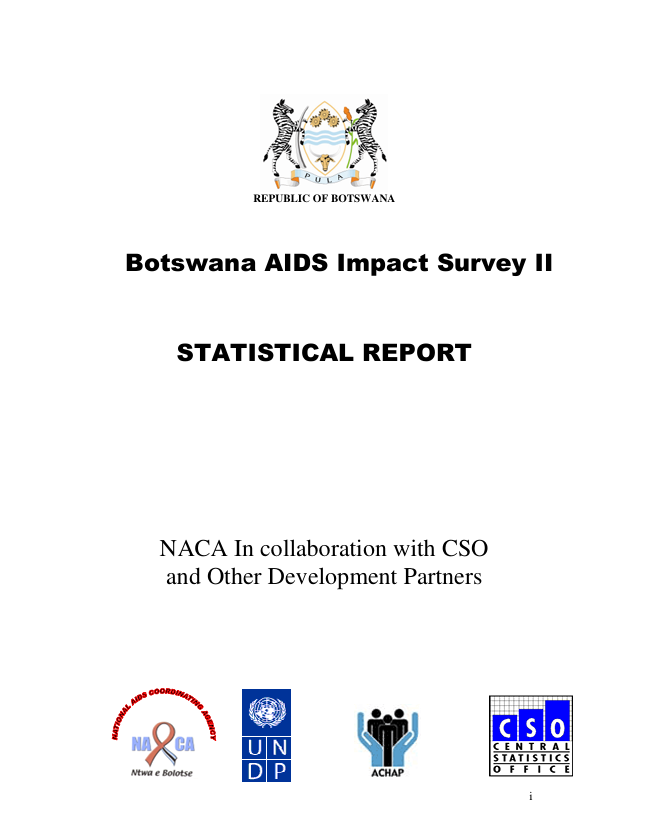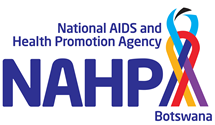BOTSWANA AIDS IMPACT SURVEY II
Three years have elapsed since the first Botswana AIDS Impact Survey I (BAIS I) was conducted. The multi-sectoral national response actions have also continued to be implemented with new strategies for an ARV programme and VCT introduction. Other programmes such as PMTCT have been scaled up. The time interval for taking stock of where we are and what difference, if any, we are making is appropriate. The gathering of this new data will buttress the monitoring of behavioural change trends and the national HIV prevalence. It is for this reason, that NACA and CSO in collaboration with other stakeholders have undertaken the second national HIV behavioral survey in the country.
BAIS II is to provide information on the population’s sexual behavioural pattern and the HIV/AIDS prevalence. The information will be utilized in guiding the formulation and development of national and district HIV/AIDS and other health related policies and programmes. The survey is expected to generate nationally representative, population-based estimates of HIV/AIDS prevalence amongst the population of 18 months old to 64 years plus. It will identify and document those factors (i.e. e. behaviour, knowledge, attitudes, cultural factors) that are associated with the HIV epidemic (prevention, infection and impact mitigation amongst the population age 10-64 years). The survey results will establish benchmarks against which successive progress on the impact of the National Response to HIV/AIDS can be measured and be a catalytic in breaking the silence and opening up discussions about the sexual risk factors responsible for spreading the HIV virus at household, community and national levels. The implementation of this survey was strategic and inclusive and therefore achieved the stated objectives.
The survey focused primarily on capturing qualitative and quantitative information relating to the following topical areas of the HIV/AIDS epidemic: knowledge about the HIV/AIDS, its consequences, prevention methods, available services within the national response, attitudes towards staying negative, being infected and/or affected, orphans and vulnerable children, utilization of available sexual and reproductive health (SRH), HIV/AIDS services and programmes, sexual behavioural and practices of men, women, and the youth, HIV/AIDS status of the population aged 18 months and above and some cultural determinants of the epidemic.
Type of document : Surveys-BIAS
Thematic Area : HIV/AIDS


